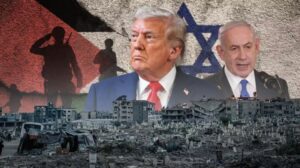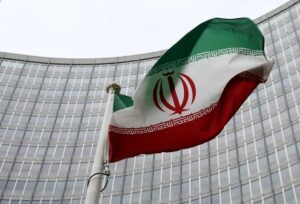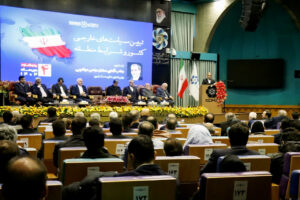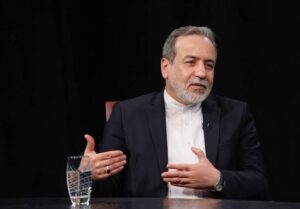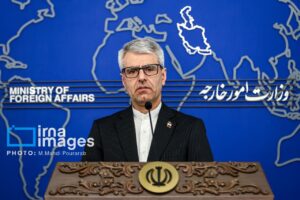Iran would like to offer the following general observations and comments on the content of this report:
General observations
(1) Disclosure of confidential information
The report continues to share details that are not only unnecessary but also sensitive and classified. This runs contrary to Article 5 of Iran’s Safeguards Agreement (INFCIRC/214), which explicitly states that such information can’t be made public without Iran’s consent. Iran has repeatedly voiced its opposition to this practice through various channels, including Letter No. 684086 dated 4 February 2021, published as INFCIRC/954. In that letter, Iran stated:
“The Islamic Republic of Iran believes the Secretariat and the Board of Governors must seek Iran’s express approval before publishing the Director General’s reports. If not, they risk violating confidentiality and could be held legally responsible.”
(2) Mixing up legal frameworks
The report blends two distinct frameworks—the JCPOA and the NPT Safeguards Agreement—which should remain separate. Issues related to the JCPOA have been mixed into the NPT Safeguards section, and vice versa. The JCPOA is a unique political and diplomatic agreement backed by the UN Security Council, and it should not be used to reinterpret obligations under other treaties like the Comprehensive Safeguards Agreement (CSA). Keeping these legal frameworks clearly separated is vital to preserving the legal and diplomatic balance that underpins both the JCPOA and the broader non-proliferation system.
(3) E3’s non-compliance with JCPOA
The failure of France, Germany, and the UK (the E3) to lift sanctions on the JCPOA’s Transition Day (18 October 2023) is a straightforward breach of both the deal itself and UNSCR 2231. This is just one example of a broader pattern where these countries selectively follow through on their obligations—or don’t follow through at all.
(4) Iran’s ongoing commitment to the NPT and CSA
Iran reaffirms its full commitment to its legal obligations under the NPT and the CSA. Any conclusions suggesting the IAEA can’t confirm the peaceful nature of Iran’s nuclear activities must remain within the boundaries of JCPOA-related voluntary measures. These assessments shouldn’t be applied to Iran’s commitments under the CSA, which are of a different nature and scope.
(5) Voluntary measures tied to reciprocity
Iran remains open to constructive cooperation with the IAEA. However, it emphasizes that the full return to JCPOA-related monitoring will only happen if all parties return to their commitments. Until then, the Agency’s reports should stick to what Iran is legally obligated to under its safeguards agreement and avoid blending legal judgments with political views. Most importantly, the Agency must stay within its clearly defined role under UNSCR 2231.
(6) Removal of monitoring equipment
Paragraph 32 of the report claims that Iran’s decision to remove IAEA surveillance and monitoring tools has hurt the Agency’s ability to verify the peaceful nature of Iran’s program. However, this action is legally sound under the CSA. There’s a difference between binding obligations and voluntary steps taken in good faith. The Agency needs to respect this distinction to protect the integrity of its mandate and the legal agreements it enforces.
(7) Suspension of the additional protocol
Iran suspended its provisional and voluntary implementation of the Additional Protocol in line with national legislation after the U.S. unilaterally pulled out of the JCPOA. This decision is based on Iran’s rights under Articles 26 and 36 of the JCPOA.
It’s also important to remember that both the implementation and possible ratification of the Protocol were always contingent on the full and fair implementation of the JCPOA by all parties.
(8) Uranium enrichment and national rights
Responding to concerns in paragraph 34 of the report, Iran stresses that the CSA doesn’t set any limits on the level of uranium enrichment. Fuel cycle activities, including enrichment, are part of Iran’s national policy and are fully recognized under the NPT and other international frameworks. These activities fall within the sovereign rights of all Member States.

